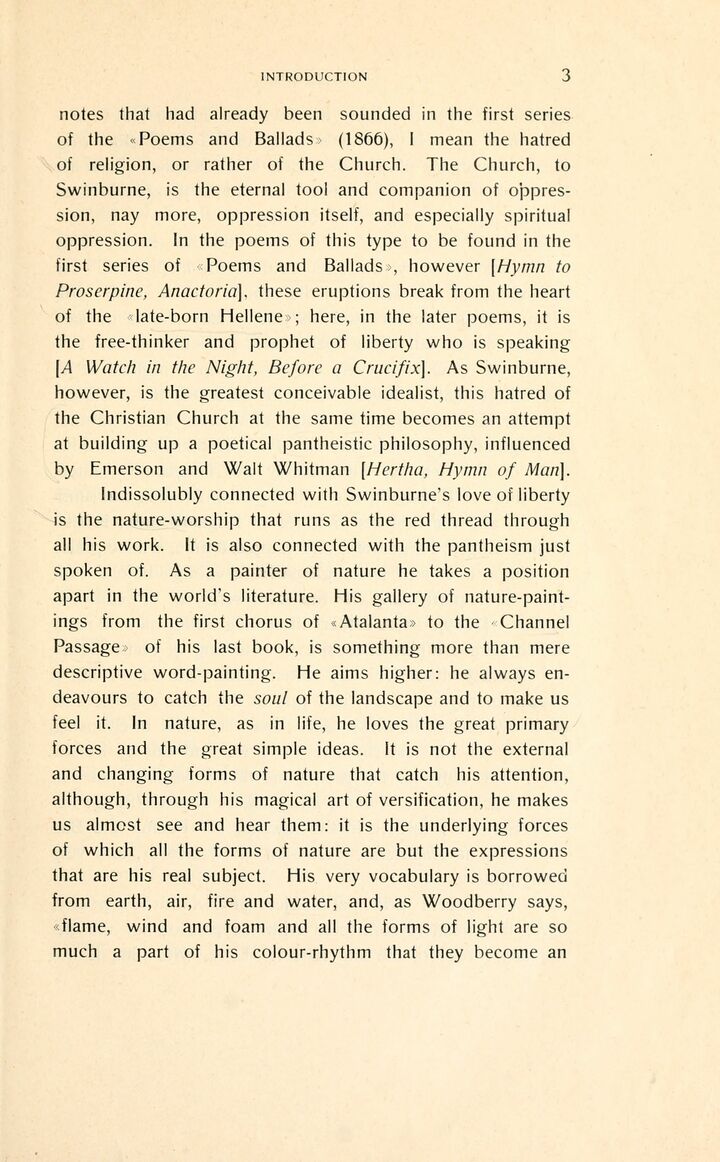
Full resolution (JPEG) - On this page / på denna sida - Sidor ...

<< prev. page << föreg. sida << >> nästa sida >> next page >>
Below is the raw OCR text
from the above scanned image.
Do you see an error? Proofread the page now!
Här nedan syns maskintolkade texten från faksimilbilden ovan.
Ser du något fel? Korrekturläs sidan nu!
This page has never been proofread. / Denna sida har aldrig korrekturlästs.
3 INTRODUCTION
notes that had already been sounded in the first series
of the «Poems and Ballads» (1866), I mean the hatred
of religion, or rather of the Church. The Church, to
Swinburne, is the eternal tool and companion of
oppression, nay more, oppression itself, and especially spiritual
oppression. In the poems of this type to be found in the
first series of « Poems and Ballads >, however \Hymn to
Proserpine, Anactoria]. these eruptions break from the heart
of the <late-born Hellene»; here, in the later poems, it is
the free-thinker and prophet of liberty who is speaking
[A Watch in the Night, Before a Crucifix]. As Swinburne,
however, is the greatest conceivable idealist, this hatred of
the Christian Church at the same time becomes an attempt
at building up a poetical pantheistic philosophy, influenced
by Emerson and Walt Whitman [Hertlia, Hymn of Man].
Indissolubly connected with Swinburne’s love of liberty
is the nature-worship that runs as the red thread through
all his work. It is also connected with the pantheism just
spoken of. As a painter of nature he takes a position
apart in the world’s literature. His gallery of
nature-paintings from the first chorus of «Atalanta» to the < Channel
Passages of his last book, is something more than mere
descriptive word-painting. He aims higher: he always
endeavours to catch the soul of the landscape and to make us
feel it. In nature, as in life, he loves the great primary
forces and the great simple ideas, it is not the external
and changing forms of nature that catch his attention,
although, through his magical art of versification, he makes
us almost see and hear them: it is the underlying forces
of which all the forms of nature are but the expressions
that are his real subject. His very vocabulary is borrowed
from earth, air, fire and water, and, as Woodberry says,
«flame, wind and foam and all the forms of light are so
much a part of his colour-rhythm that they become an
<< prev. page << föreg. sida << >> nästa sida >> next page >>